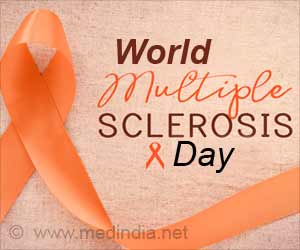Short-chain fatty acid like propionic acid can influence the intestine-mediated immune regulation in people with multiple sclerosis (MS) and can reduce brain atrophy, reports a new study.

‘Application of propionic acid in addition to multiple sclerosis medication decreased the relapse rate and the risk of disability progression in the long term.
’
Read More..




Self-sufficient organ within the gut Read More..
The gut microbiome, i.e., the entire bacterial colonization of the intestine, plays an important role not only for the healthy organism but its association with chronic diseases, such as multiple sclerosis has been recently appreciated. Within the gut, the interaction between dietary components, microbiota, their metabolites, and the immune system takes place in the intestinal wall. "This is how intestinal bacteria can, directly and indirectly, affect anatomically distant structures such as the brain," explains Aiden Haghikia. "Accordingly, the gut microbiome acts like a self-sufficient endocrine organ that interacts with the environment."
Short chain fatty acids can suppress inflammatory reactions
In the current study, the researchers successfully transferred the results previously shown in the cell culture dish and the experimental model to their MS patients: short-chain fatty acids such as propionic acid or its salt propionate increased the differentiation and function of regulatory T cells in the gut. "These cells stop excessive inflammatory processes and reduce auto-immune cells in auto-immune diseases like MS," says Professor Ralf Gold, Director of the Department of Neurology at St. Josef Hospital.
In their study, the researchers showed that the microbiome composition is altered in MS patients. Moreover, they demonstrated a deficiency of propionic acid in the feces and serum of MS patients, which was most pronounced in the earliest phases of the disease. These data were obtained in collaboration with the Max Delbrück Center Berlin and the Institute of Nutritional Sciences at Martin Luther University Halle-Wittenberg.
Advertisement
In collaboration with researchers from the Bar-Ilan University in Israel, who had developed an intestinal model for the functional analysis of the microbiome, it emerged that associated propionate changes of the gut microbiome play a crucial role in the differentiation of regulatory cells. The increased function of these cells was due to their improved energy utilization through an altered function of the mitochondria, as the research team demonstrated in collaboration with the Molecular Cell Biology research group at the RUB Faculty of Medicine.
Advertisement
The short-chain fatty acids represent only a fraction of the metabolites of intestinal bacteria that are generated from the diet. "Further research into this largely unknown organ and the knowledge gained from it will enable us to develop innovative dietary measures to complement the known therapeutics in the future," says Aiden Haghikia.
Source-Eurekalert















